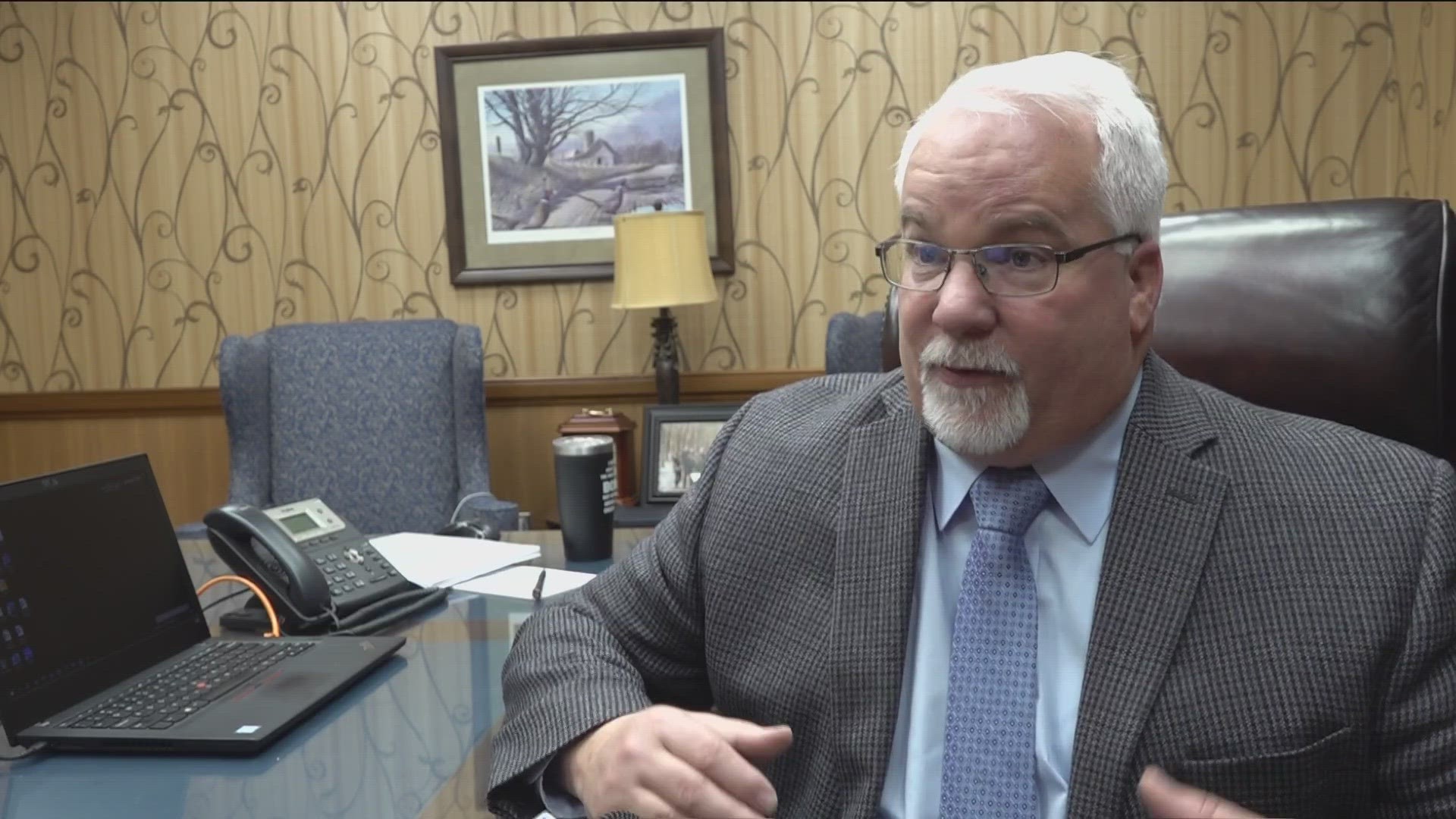GENOA, Ohio — National banks are taking a hit after the failure of Silicon Valley Bank, an institution that held the tech-fund fortunes of some of the Valley's billionaire elite.
The bank's closure sent a shockwave through the stock market on Monday, with bank stocks across the board dropping between five and thirty points.
As more information about SVB's financial portfolio is revealed, the more Collin Gilstrap, an associate professor of finance at the University of Toledo, questions how the bank came to be in power in the first place.
"I think my undergraduate students could run a bank balance sheet better than they did," Gilstrap said of SVB's management.
The bank acted like a gambler by investing their customer's money in long-term options like 15 and 30-year bonds, assuming they would never have to pull that money out -- after all, tech has been the market that won't stop for the last few years.
But then the tech industry hit a wall, seeing a downturn in technology stocks. So SVB had to pull out the bonds far too early.
"But because they bought all these long-term treasury bills, they're only making 1-1.5% on their investment," Gilstrap said. "They're just every day losing money due to bad bank management."
Other banks that also invested in tech or SVB stock are paying the price.
But local financial institutions, like Genoa Bank, say they didn't get burned at all. Genoa Bank President Marty Sutter said it comes down to better investment choices.
"I've been president and CEO for over 24 years, we've never put out long-term assets like mortgages, even residential mortgages," Sutter said.
Instead, they sell off their mortgages to bigger institutions.
As a community bank, Genoa can't treat its customers' money like a casino because they know the faces of the people they're borrowing from, Sutter said.
"That trust is important, we know them, we see them at the grocery store, we see them at church, we want to take care of them," he said.
Sutter said the biggest risk SVB took was laser-focusing on tech startups.
While local banks make significantly less money, Sutter said giving a loan to a mom-and-pop shop is much more satisfying.
"Local banks make a difference in the communities we serve," he said.
But, your money in the bank should be fine, Gilstrap said. Unlike the financial crisis of 2008, this crash has been limited to only a few banks that are tech-heavy investors connected to SVB.
As a fire drill for the banking industry, SVB's failure actually proves that things are working better than they did during the last financial crisis, Gilstrap said.

